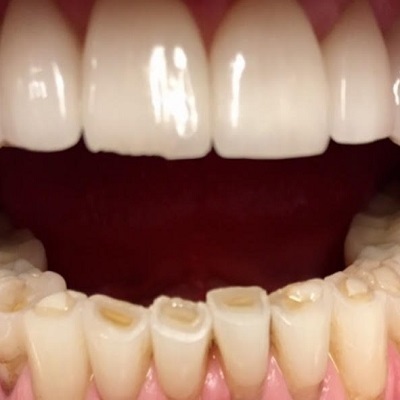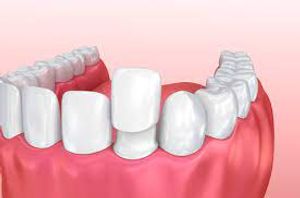Teeth grinding, also known as bruxism, affects a significant number of people in Dubai. While many individuals seek help from the Best Teeth Grinding Treatment Clinic In Dubai, integrating relaxation techniques into daily life can significantly reduce the symptoms of this condition. Managing stress and promoting relaxation are critical components of an effective treatment plan for teeth grinding, particularly when anxiety and tension are contributing factors.
In this article, we’ll explore various relaxation techniques that can aid in managing bruxism and how these methods complement clinical treatments.
Understanding Teeth Grinding and Its Causes:
Teeth grinding occurs when a person unconsciously clenches their jaw or grinds their teeth, often during sleep. Stress, anxiety, sleep disorders, and misaligned teeth are common causes. Bruxism can lead to jaw pain, headaches, and damage to the teeth over time.
While visiting the best teeth grinding treatment clinic in Dubai is essential for diagnosis and traditional treatments like night guards, relaxation techniques offer a natural and supportive way to manage symptoms by targeting one of the root causes: stress.
1. Meditation for Stress Reduction:
Meditation is a well-known practice for reducing stress, and it has become an essential tool in managing various health issues, including bruxism. Regular meditation helps individuals achieve a calm state of mind, reducing tension and anxiety that may trigger teeth grinding.
How It Works:
Meditation encourages deep breathing and mindfulness, which relaxes the body and mind. By focusing on breathing patterns, individuals can train themselves to release tension in their jaw and shoulders, where stress often accumulates.
Benefits:
Lowers stress levels and promotes relaxation
Increases self-awareness, helping to identify when teeth grinding occurs
Improves sleep quality, which can reduce nighttime bruxism
2. Deep Breathing Techniques for Muscle Relaxation:
Deep breathing exercises are another effective way to manage the tension that can cause bruxism. These techniques can be practiced anywhere, from home to the office, and can quickly calm the nervous system.
How It Works:
Deep breathing sends oxygen to the brain and relaxes tense muscles, particularly those in the face and jaw. The simple act of taking slow, controlled breaths can alleviate stress and reduce the urge to clench the teeth.
Benefits:
Helps relax the muscles involved in grinding
Reduces anxiety and improves overall mental clarity
Easy to practice as part of a daily routine

3. Progressive Muscle Relaxation (PMR):
Progressive muscle relaxation (PMR) is a technique that involves tensing and then slowly releasing different muscle groups. This method is particularly effective for those experiencing jaw pain from bruxism, as it trains the body to recognize and release tension.
How It Works:
Starting from the feet and moving upward, individuals tense each muscle group for a few seconds and then release the tension. When applied to the jaw muscles, PMR can be particularly useful in relieving the pressure that leads to teeth grinding.
Benefits:
Targets specific muscle groups like the jaw
Reduces physical and mental tension
Can be done at home or with the guidance of a therapist
4. Yoga for Full-Body Relaxation:
Yoga incorporates deep breathing, stretching, and mindfulness to promote overall well-being. For individuals suffering from bruxism, yoga can help release tension in the body and mind, reducing the likelihood of teeth grinding.
How It Works:
Certain yoga poses target the neck, shoulders, and jaw, which are common areas of tension in people who grind their teeth. By practicing yoga regularly, individuals can improve their posture, reduce stress, and relax tight muscles.
Benefits:
Enhances mental clarity and emotional balance
Promotes relaxation and reduces muscle tension
Can be combined with meditation for greater effectiveness
5. Cognitive Behavioral Therapy (CBT):
Cognitive Behavioral Therapy (CBT) is a psychological treatment that helps individuals change negative thought patterns and behaviors. For those suffering from stress-related bruxism, CBT can provide tools to manage anxiety and emotional triggers.
How It Works:
CBT works by identifying negative thinking patterns and replacing them with positive, stress-reducing thoughts. Individuals can learn to recognize when they are grinding their teeth and develop strategies to stop it.
Benefits:
Reduces anxiety and emotional triggers of bruxism
Helps break the habit of teeth grinding
Can be used in conjunction with other relaxation techniques
6. Aromatherapy for Stress Relief:
Aromatherapy uses essential oils to promote relaxation and reduce stress, which can contribute to teeth grinding. Scents like lavender, chamomile, and sandalwood are known for their calming effects.
How It Works:
By inhaling essential oils or using them in a diffuser, individuals can create a calming environment that encourages relaxation. Aromatherapy can be particularly useful before bedtime to reduce nighttime bruxism.
Benefits:
Promotes relaxation and stress relief
Improves sleep quality, reducing the likelihood of teeth grinding at night
Can be combined with meditation or breathing exercises
7. Massage Therapy for Jaw and Neck Tension:
Massage therapy focuses on releasing muscle tension, particularly in areas like the jaw, neck, and shoulders. For individuals experiencing pain or discomfort from bruxism, massage can offer relief and help prevent further teeth grinding.
How It Works:
A professional massage therapist can target areas of tension caused by teeth grinding, reducing soreness and preventing muscle tightness. Self-massage techniques, such as applying gentle pressure to the jaw and temples, can also help relieve tension at home.
Benefits:
Alleviates muscle pain and discomfort from bruxism
Reduces overall stress levels
Can be incorporated into a self-care routine
Combining Relaxation Techniques with Professional Treatment:
While relaxation techniques offer significant benefits in managing bruxism, it’s essential to consult with the best teeth grinding treatment clinic in Dubai for a comprehensive treatment plan. Night guards, dental evaluations, and lifestyle changes often complement these relaxation methods for a more holistic approach.
Conclusion:
The role of relaxation techniques in managing teeth grinding is increasingly recognized as an effective way to reduce the symptoms of bruxism. Whether through meditation, breathing exercises, yoga, or massage, these methods can help individuals achieve a more relaxed state and prevent teeth grinding. However, for the best results, it’s essential to combine these techniques with professional guidance from the best teeth grinding treatment clinic in Dubai. By addressing both the physical and emotional aspects of bruxism, individuals can find long-term relief and improve their overall well-being.
